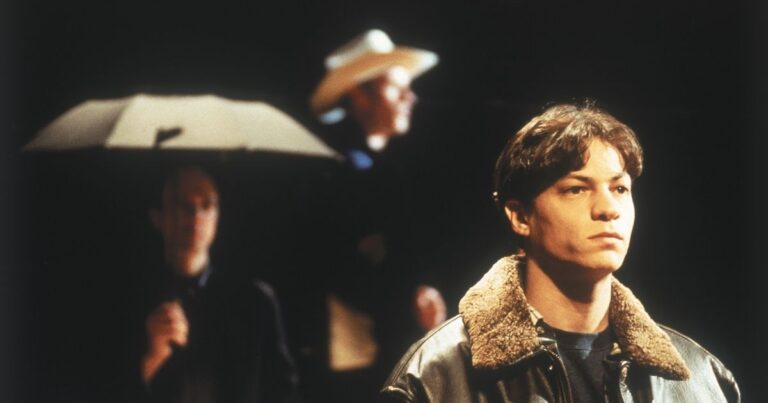
Only twenty years old and showing our age
BY LAWRENCE GIBBONS
Maybe it was the construction boom in the lead up to the Olympics. Maybe it was the 24 hour late night bar culture. Maybe it was all of those party drugs. In 1995
Sydney was euphoric. Twenty years ago, when the first issue of the City Hub hit the streets, the eyes of the world were on Sydney. And she looked fabulous.
Few global cities sparkled as spectacularly as Sydney. Australia’s largest city was preparing to host the world’s largest sporting event. And the Harbour City glowed
with boundless optimism and endless possibilities
The City Hub was born in a progressive age. Here in what was once known as the “Scandinavia of the South Pacific”, we were ruled over by chardonnay socialists and bourgeois battlers. Paul Keating — a Bankstown Boy with Woollahra tastes — lived in the Lodge. And Macquarie Street was manned by Bob Carr — an erudite patrician from a former working class neighbourhood with breathtaking waterfront views.
At the hands of the eastern suburbs elite Sydney was a forward looking town. Nowadays, under the hands of Manly men from the North Shore, Sydney is more hell bent on turning the clock back to the 1950s.
In 1995 the late night districts of Oxford Street and Kings Cross were internationally renowned party centres. Revellers spilled out into the street and raged on till dawn and the now infamous “recovery parties”. Long before king hits, 1:30 lockouts, and pub closures, Sydney was the capital of cool. Sydney knew how to party and she had good reason to celebrate.
After the 2000 Olympics, Sydney had a terrible hang over. Hotel rooms in Kings Cross were transformed into residential units. Tourists looking for a fun time were replaced with cranky baby boomers looking for a good night’s sleep. In 2003 Elizabeth Farrelly wrote, “In five years, no fewer than six Kings Cross hotels have been converted to luxury apartments (Top of the Town, Chateau, Landmark Parkroyal, Gazebo, Manhattan, Sebel). A number of factors are at play here, all of them handed down by the majority market gods: Sydney’s post-Olympic hotel drift to the city-centre, the global downturn in tourism and the city’s huge residential swell.”
In 2015 the transformation of Kings Cross from a late night party centre to a residential precinct is all but complete as Mansions, the Swans and the Bourbon have
all become apartment blocks and more and more pubs close in the face of late night lock out laws.
Oxford Street has fared no better in recent years. Sniffer dogs, trained to protect athletes at Homebush during the Olympics were redeployed to police party goers and were disproportionately used in gay venues. Punters, carrying a happy pill or a joint, were arrested and big time drug traffickers continued to prosper. More and more people opted to stay away from Oxford Street. Mardi Gras party numbers declined annually from a peak of 27,000 in 1998. Faced with declining numbers, Mardi Gras went into receivership in 2002.
In 2004, Lord Mayor Lucy Turnbull announced plans to “revitalise” Oxford Street by repaving the Golden Mile with corporate grey granite. During the “upgrade”, implemented by Lord Mayor Clover Moore, many local retailers went out of business. Over the ensuing ten years, clearways, two Westfield shopping centres at either end of Oxford Street and the GFC have helped kill off Oxford Street’s daytime economy. Sniffer dogs and lock out laws have helped killed off Oxford Street’s late night economy, ensuring that the area is struggling 24/7.
To be fair, Sydney is not the only global city whose urban buzz is being stifled by market forces. Main Streets around the world are facing increased vacancies as local retailers shut up shop in the face of rising rents and declining trade as more and more people go online to shop. From New York to London to Sydneytown, the world’s once thriving entertainment precincts are fast becoming sleepy hollows as night time revelry is silenced by whinging residents.
As local businesses close down, local newspapers also struggle to survive in our brave new digital age. The same week that the
City Hub launched in August of 1995, Microsoft released its first version of Microsoft Explorer radically transforming the way that everything from news, to music to retail goods is distributed. As more and more local shops, pubs and newspapers close down; it is small consolation that Microsoft’s own shares are suddenly plummeting. As new digital platforms replace old fashioned web browsers, Microsoft is reportedly about to phase out Explorer altogether. As local newspapers shut down, news becomes globalised and local information becomes trivialised by social media platforms. Through it all we are still standing here at the
City Hub, doing our best to “print the news and raise hell” as we have for twenty years.









